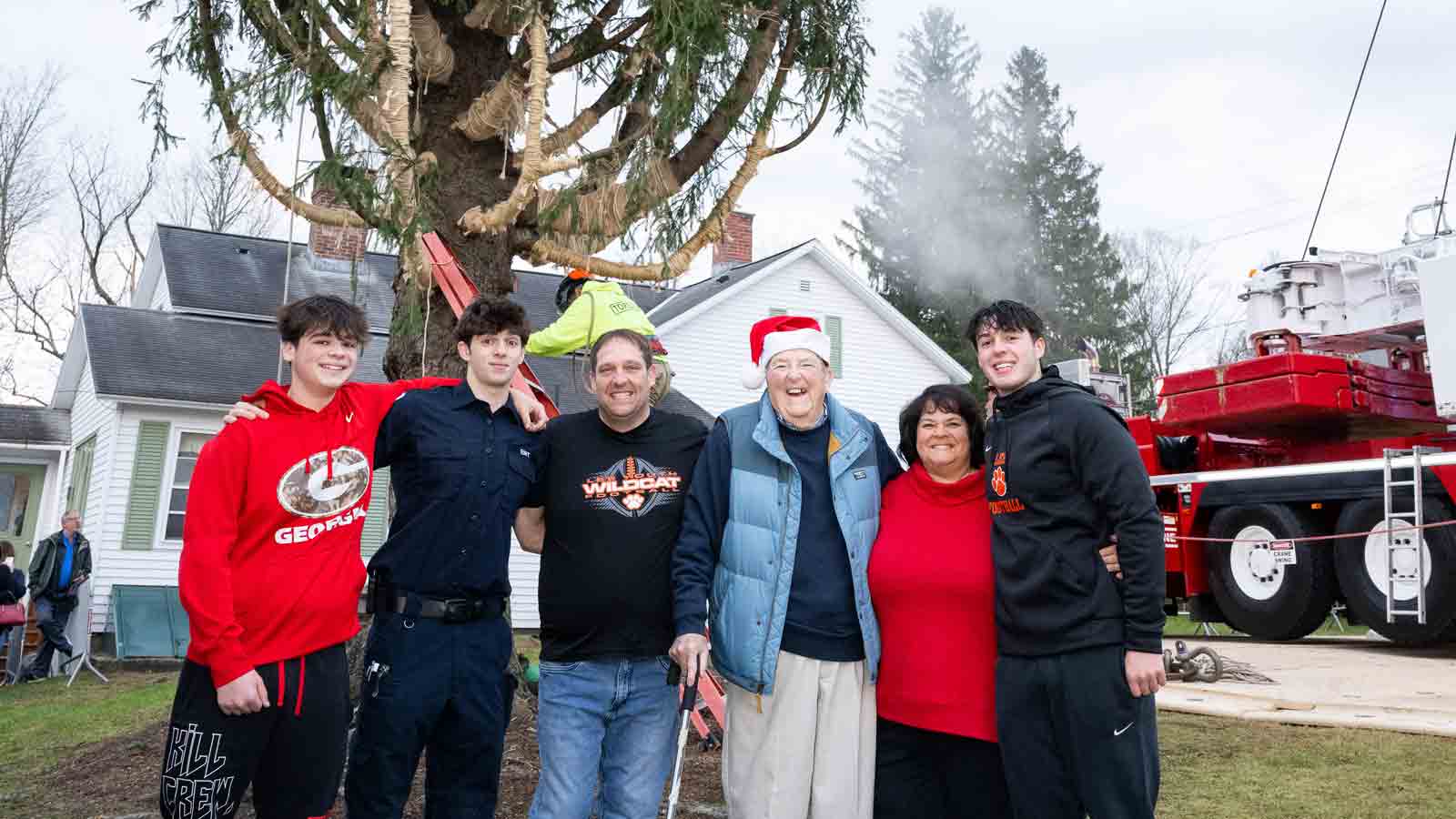Three thousand, seven hundred miles from home, a Honduran couple and their 4-year-old son were about to cross into Canada through upstate New York.
The family planned to seek asylum there. U.S. Border Patrol agents found them first.
The husband was sent to the Buffalo Federal Detention Center. The wife and child were taken to the Berks County Residential Center in Leesport, Pennsylvania.
Mother and son spent the next 140 days at the county-run, federally-funded prison before being released July 27.
The father was also released and the family is on their way to Florida to live while continuing to fight for asylum, according to one of their pro bono attorneys, Bridget Cambria.
A worse fate befell 10 other mothers and their children at Berks. After spending more than two years at the former nursing home 80 miles west of Philadelphia, they all were deported in May.
“That was May 11, the worst day of our lives,” Cambria’s colleague, attorney Carol Anne Donohoe, said of the previously unreported removals of nine of the families. One mother and her child were first deported May 3.
U.S. & World
Stories that affect your life across the U.S. and around the world.
The varied outcomes for asylum seekers, and the incredible amounts of time they can spend at Berks, is telling about a place critics describe as child immigrant purgatory. It’s the only facility of its kind in the country where parents and children can be held for an indefinite time.
“There’s a 16-year-old, Victor. He’s spent two years behind these walls. These stupid walls are all he knows,” Cambria said. “The whole thing is torture. You’re contained inside this building. They’ll say, ‘We see the same walls. All day, every day.’”
Advocates call the center a humane approach to detaining undocumented immigrants in the midst of a labyrinthine process for asylum. Federal officials granted NBC10 a tour of the facility, though the Immigration and Customs Enforcement (ICE) administrator was not available for an interview. ICE also did not allow a reporter to talk with detainees or use a camera.
“People are treated rather well,” said Kevin Barnhardt, one of three locally-elected county commissioners. “It’s not my fault they are there for a longer period of time because they filed appeals to their immigration.”
Since 2011, the county has made nearly $7 million from operating the detention center for ICE, an arm of the Department of Homeland Security.
“My view is the county works in cooperation with the federal government. They’re performing an important function,” another county commissioner, Mark Scott, said. “I’m more than happy to provide some assistance to them.”
‘They Won the Worst Lottery Ever’
When the 10 recently deported women crossed into Texas over two years ago, they claimed to be escaping sexual abuse, violence and possibly death back in their Central American countries. They came from an area known as the Northern Triangle, a trio of countries with the highest murder rates in the world.
No one is able to say with certainty why the immigration and judicial systems funneled them, in particular, to Berks and left them in legal limbo as hundreds of other immigrant men, women and children came and went.
“It’s the luck of the draw to end up in detention,” Cambria said. “They won the worst lottery ever.”
They’re known collectively as the Castro mothers, named for the court case: Castro v. Department of Homeland Security. The Supreme Court in April declined to hear their appeal, which challenged a lower court ruling denying the families further judicial relief from ICE expedited removal orders.
Cambria, Donohoe and a fellow attorney, Jacquelyn Kline, continued to argue that the mothers and children be freed and granted asylum because many of the children had already received Special Immigrant Juvenile (SIJ) status.
“The purpose of the SIJ program is to help foreign children in the United States who have been abused, abandoned or neglected,” according to U.S. Citizenship and Immigration Services.
Despite that, on May 3, the first mother and child were deported to Honduras. Cambria and Kline said they heard about their clients’ removals while in court for another case. That deportation initially garnered national attention after U.S. Sen. Bob Casey, D-Pa., unleashed a flurry of tweets calling unsuccessfully for the reversal of ICE’s removal order.
Eight days later, the sweeping removal of the nine other mothers, and their children, evoked no publicity.
They and thousands of other men, women and children have fled El Salvador, Guatemala and Honduras in the last decade, an exodus spurred on by drug wars between murderous gangs like MS-13.
Honduras and El Salvador have the two highest murder rates in the world, at 75 per 100,000 and 62 per 100,000, respectively, according to 2014 figures from the World Bank. Guatemala has the seventh highest rate at 32 per 100,000.
The murder rate for the United States is 3.9 per 100,000, according to the most recent data available.
if("undefined"==typeof window.datawrapper)window.datawrapper={};window.datawrapper["MpTfb"]={},window.datawrapper["MpTfb"].embedDeltas={"100":682,"200":604,"300":578,"400":578,"500":578,"600":552,"700":552,"800":552,"900":552,"1000":552},window.datawrapper["MpTfb"].iframe=document.getElementById("datawrapper-chart-MpTfb"),window.datawrapper["MpTfb"].iframe.style.height=window.datawrapper["MpTfb"].embedDeltas[Math.min(1e3,Math.max(100*Math.floor(window.datawrapper["MpTfb"].iframe.offsetWidth/100),100))]+"px",window.addEventListener("message",function(a){if("undefined"!=typeof a.data["datawrapper-height"])for(var b in a.data["datawrapper-height"])if("MpTfb"==b)window.datawrapper["MpTfb"].iframe.style.height=a.data["datawrapper-height"][b]+"px"});
In the last five years, a tiny fraction of asylum requests from those three countries have been granted, according to statistics provided by the U.S. Justice Department’s Executive Office of Immigration Review.
Federal Money for County Coffers
The Berks County facility is one of only three Immigration and Customs Enforcement family detention centers. The other two are in Texas, and those facilities are not allowed to detain immigrants for more than 20 days. (A recent Associated Press report, however, found that the limit may be not adhered to by authorities.)
Berks is not privately run, but it does make a tidy profit for the county — more than $1 million in 2016.
Kevin Barnhardt, the county commissioner, said the profit comes from renting office space inside the building to ICE. That rental income totaled $1.08 million last year, though ICE’s regional deputy director Josh Reed said during a recent tour of the facility that only a handful of agents operated out of the building.
“We make money from renting floor space,” Barnhardt said. “We do not make profit on the families.”
The county’s annual financial report is less definitive, indicating that the center had an operating income of $1,097,553 in 2016, which factored into what is described as a “total net position” of $6.8 million since its 2011 opening as an immigrant family detention center. Both commissioners interviewed said annual profits from the facility go into the county’s general fund.
Up to 96 immigrant men, women and children can be held at any time. During the walkthrough in late July, Reed said about 67 people were held at that time, but that the number fluctuates. For decades, the building housed a nursing home. When the county decided to build a new one, Scott said they found ICE eager to utilize the space.
Berks County previously held immigrants at another county detention facility in a partnership with ICE, so the relationship was already established, Scott said.
“Many years ago, the county had some criminal aliens who were detained and mixed in the prison population,” he said. “We were dealing with adult males back then. I think what happened is the feds realized they had this issue with people with small children.”
Accounts differ greatly of the living conditions inside the center. A county staff of 65 operate and manage the facility. The attorneys for the detainees say a recent influx of male parents with children has created an unsettling environment.
“There are examples of a father and his daughter sharing a room with mothers and their children,” Cambria said. “Where else is that allowed?”
[Photos] Tears u0026 Songs at Shut Down Berks Vigil
The building’s first floor includes a visitation area for phone calls and meetings with attorneys, a large communal space with eight computers called the Program Floor, an indoor playroom for small children and an exit to a rear playground, picnic area and small sports field. There is also a wing with four classrooms.
The second-floor has a cafeteria and another common area separating two wings of sleeping quarters. Each wing has shared bathrooms with showers. A guard watched over one while a short line formed. A corridor leads to a medical wing.
Each bedroom consists of six to eight beds, with some rooms occupied by four adults and four children, others by three and three. Locker-style closets served as storage space.
Reed said the facility makes every effort to keep those detained there in comfortable conditions. He touted classrooms run by the Berks County Intermediate Unit as providing children with access to teachers that is “a little more one-on-one here than in public schools.”
The center’s contract with the county Intermediate Unit has skyrocketed since 2011. The BCIU is now paid $78,000 a month for education services, according to vendor contracts obtained through a Right-To-Know request.
BCIU executive director Jill Hackman did not return a message seeking comment.

Three Lawyers Who Won't 'Shut Up'
The Castro case still looms over the center. Four mothers and their children, who were also plaintiffs, are still there. They remain in court appeals for the right to stay in the country.
Their collective story has brought attention to a federal center tucked amid the foothills of the Appalachian Trail.
State support has waned under Gov. Tom Wolf, who wants the federal government to look at alternatives for housing asylum seekers. He allowed the Pennsylvania Department of Human Services to consider revoking the center’s license as a “child residential facility.”
A DHS spokeswoman said a departmental review remains under consideration.
Wolf made his preference clear in May.
“Gov. Wolf has repeatedly urged the U.S. Departments of Health and Human Services and Homeland Security to consider community-based options to serve these families whenever possible,” the governor’s spokesman J.J. Abbott said at the time. “He believes that the center should no longer detain these families and his administration continues to pursue the revocation of their state license.”
Mark Scott, the county commissioner, said he could not discuss the licensing issues, but said the state inspects the facility frequently. Kevin Barnhardt, another commissioner, said Berks has been inspected 30 times already in 2017.
"We understand there are people who have an ax to grind and want open borders. But in our case, it’s not a political issue," Scott said. "We’ve had people who objected to the center. We gave them a tour and they shut up."
That's not the case for the three pro bono lawyers Cambria, Donohoe and Kline. They continue almost daily treks from their Reading office to meet with detainees.
They are in near constant communication with one asylum seeker or another. Their detestation for Berks is evident in the numerous stories they pass along from clients.
The psychologist who says long-term detainees have stabilized.
“They come fleeing from violence and abuse in their home countries. They have all these traumas on their journey here,” Kline said. “Now, they’re re-traumatized.”
The staff counselors always watching.
“We’ve had one of our clients who was told she smiled too much, and she was written up for it,” Cambria said.
The coming of age inside a federal detention center.
“How can we live in a country where we can accept that a child is being detained?” Donohoe said. “It’s absurd.”



